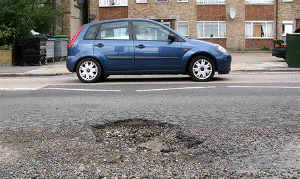More than 1 in 10 over 55s have mortgage debt in the run up to retirement

Over five million adults in the UK ‘haven’t got a clue’ how much they owe in outstanding debts.15% feel their debt is ‘out of control’ and have no way of paying it off, rising to 18% of 45-54 year oldsHalf (48%) of over 55s have ‘some sort’ of debt in the decade before retirement, more than one in ten (11%) still have a mortgage.
According to the latest study from Aviva, two thirds (67%) of Brits admit to having debt that’s weighing them down. Almost one in ten (9%), or the equivalent of just over 5 million adults in the UK, ‘haven’t got a clue’ how much they owe in outstanding debts and worryingly this figure rises to more than one in six (16%) of those aged 45 and over.
Overall, one in 7 (15%) feel their debt is out of control or they have no way of paying it off – this figure rises to 18% of over those aged 45-54, while one in ten (11%) over 55s say they are also struggling.
Predictably, the most common form of debt (32%) is credit or store card debt (30% of over 55s), followed by 16% who have personal loans and 15% who have overdrafts. 10% say they have unpaid household or utility bills. And, more than one in ten (11%) of the over 55 age group have mortgage debt in the final decade or so before retirement.
Although it’s not uncommon for people to enter retirement with some level of debt, such as credit card, mortgage debt or car loans, this debt can have a significant impact on retirement plans and financial security as it can lead to increased stress and reduced income in retirement.
Alistair McQueen, Head of Savings and Retirement at Aviva said: “Interest rates have risen to levels we haven’t seen since 2008 – and are expected to rise further. The cost of debt is now centre stage, and millions may be having to rethink their retirement plans.
“Starting to think and plan further ahead as early as possible is a small step that can make a big difference in the long-term. Individuals can take some positive actions to reduce their debt before entering retirement, such as consolidating their debt, paying off high-interest loans or switching to a cheaper rate, alongside reducing unnecessary expenses or taking out a debt management plan.
“Also, if appropriate, people could work with a financial adviser to create a full retirement plan that takes their debt into account and ensures that they have enough income to cover their expenses and enjoy their retirement years.”
2021 vs 2023 debt comparisons
In 2023, more than a half (52%) of 45-54 year olds say their debt has increased, which was more than double where this figure was in 2021 when Aviva ran the same survey and only one in four (25%) agreed. One in five (21%) say they think they are likely to carry some or significant debt into retirement – this is consistent across all age groups and genders.
Positively, people have strengthened their efforts to get out of debt across the board. The biggest proportion of people (38%) said they had cut back on non-essential monthly spending, i.e. luxury goods, holidays, entertainment, compared to 21% who had reduced this type of spending in 2021. Twice as many people (21% compared to 11% in 2021) worked overtime or got a second job. And, reassuringly, many more people (13%) said they had sought advice from debt services or helplines compared to only 7% in 2021.
Unexpected bills
Over the past 12 months almost a third of Brits (31%) said they have had to pay for an unexpected, but necessary, bill of £850 or more – this is one of the figures the ONS say is a characteristic and measure of financial vulnerability following the impact of Covid on cost of living.
Although more than half of UK adults (57%) say they have emergency savings (e.g. to pay for car/household/ boiler repairs or pay for a family event, such as a wedding), only 24% used this fund to pay for an unexpected bill. Instead, one in five (19%) used a credit card, one in ten (11%) asked family or friends to help and a similar number (8%) took out a loan or went into their overdraft. One in twenty (5%) resorted to taking out a payday loan – this figure more than doubled in the 16-24 age group to 12%. A further 5% say they cashed in their valuable pension in order to pay for any sudden and surprising costs.
Help is at hand
There are services available to help people to deal with debt. Money Helper can help point people in the direction of free debt advice services.
The Government’s Debt Respite Scheme, Breathing Space, could also help. Introduced in May 2021 after years of campaigning from debt charities, this helps to give people in debt the right to legal protections from their creditors while they deal with their debts.
Authored by Aviva





